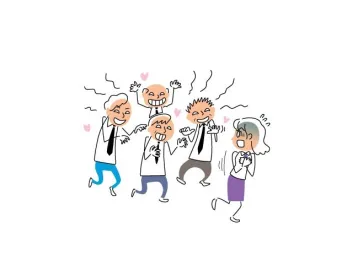The situation is a common one. An employer conducts an investigation into allegations that an employee sexually harassed another employee. The employer interviews a number of witnesses, including the alleged victim and harasser, and a disciplinary decision is made. In some workplaces, the hard work is over once the investigation is complete, but with a union, the hard work is yet to come.
Those are the basic facts of American Medical Response West, a recent NLRB decision in which the board said an employer violated the NLRA when they refused to disclose, to the union, the names of the witnesses that they interviewed. After the disciplinary decision was made, the union filed a grievance and made a customarily broad request for information, including copies of the employer’s investigation notes and the names of the employee-witnesses. The employer produced the investigation notes but redacted the names of the witnesses, claiming they were confidential and the production of them could leave the employee susceptible to harassment or retaliation by the union grieving the discipline. This concern is reasonable, particularly where the alleged harasser is well-connected or respected in the union, giving union officials an incentive to be less-than-understanding of witnesses who provide incriminating information that leads to discipline. Further complicating the situation is where a witness – as was the case here – is reluctant to come forward and only does so after being assured that their identity would remain confidential.
Generally, a union is entitled to information that is relevant to their duties as representative of an employer’s employees. The confidentiality argument serves as an affirmative defense to not producing relevant information. The defense is traditionally a tough one for employers to prove, as they are required to show that there is a “legitimate and substantial confidentiality interest” that outweighs the interests of the union in obtaining the information. The board has routinely held that there needs to be sufficient objective evidence to establish this defense.
In this case, the board said the employer was unable to show that its confidentiality interest in protecting its employees from harassment or retaliation outweighed the union’s need. The union needed the information so that it could decide whether to pursue the grievance to arbitration. The employer, on the other hand, did not provide sufficient evidence to show that there was a “reasonable expectation” or a “likelihood or real risk” that disclosure of the witness names would lead to retaliation. For example, the board said, there was no evidence that the union steward requesting the information had ever threatened, intimidated, or retaliated against employees who served as witnesses in a disciplinary proceeding or investigation.
The decision, and general board view in this area, is troubling for employers. Employers have a duty to protect their employees from harassment in the workplace, and that need for protection is greater where there is a chance that retaliation could ensue. It is essential to a thorough investigation that all witnesses need to be interviewed. Where witnesses are reluctant to come forward for fear of retaliation, employers may need to provide employees with the protection of confidentiality. The NLRB’s position unfortunately puts that protection in doubt and undermines a crucial level of trust between employers and their employees – an outcome that unions are all too eager to see.




 />i
/>i

